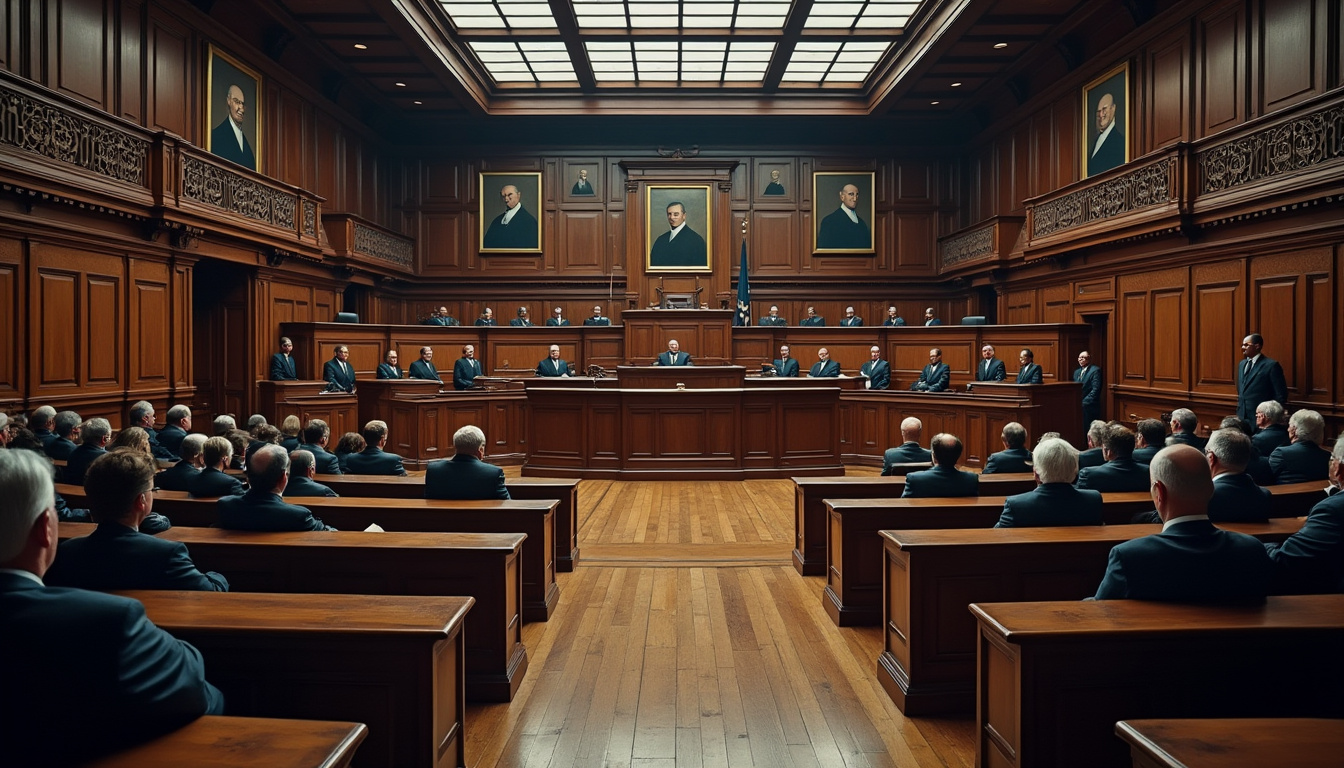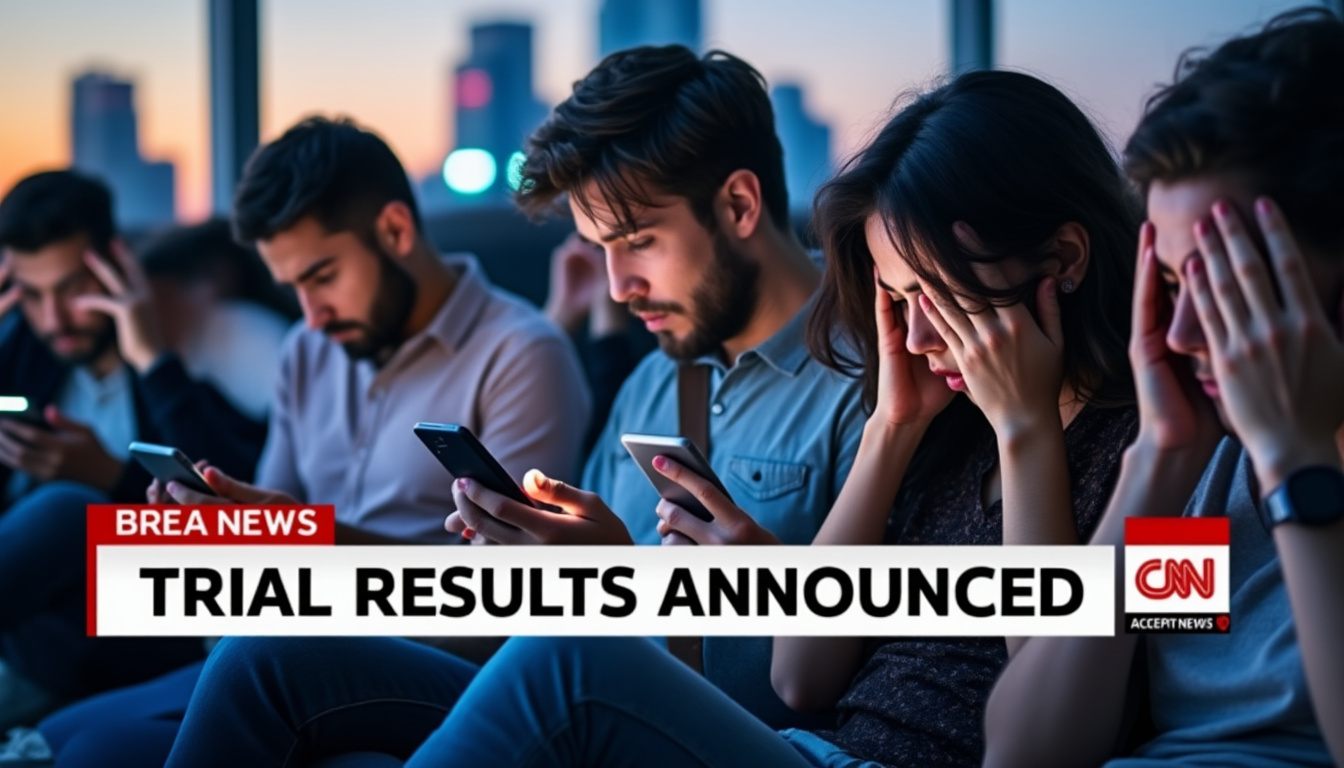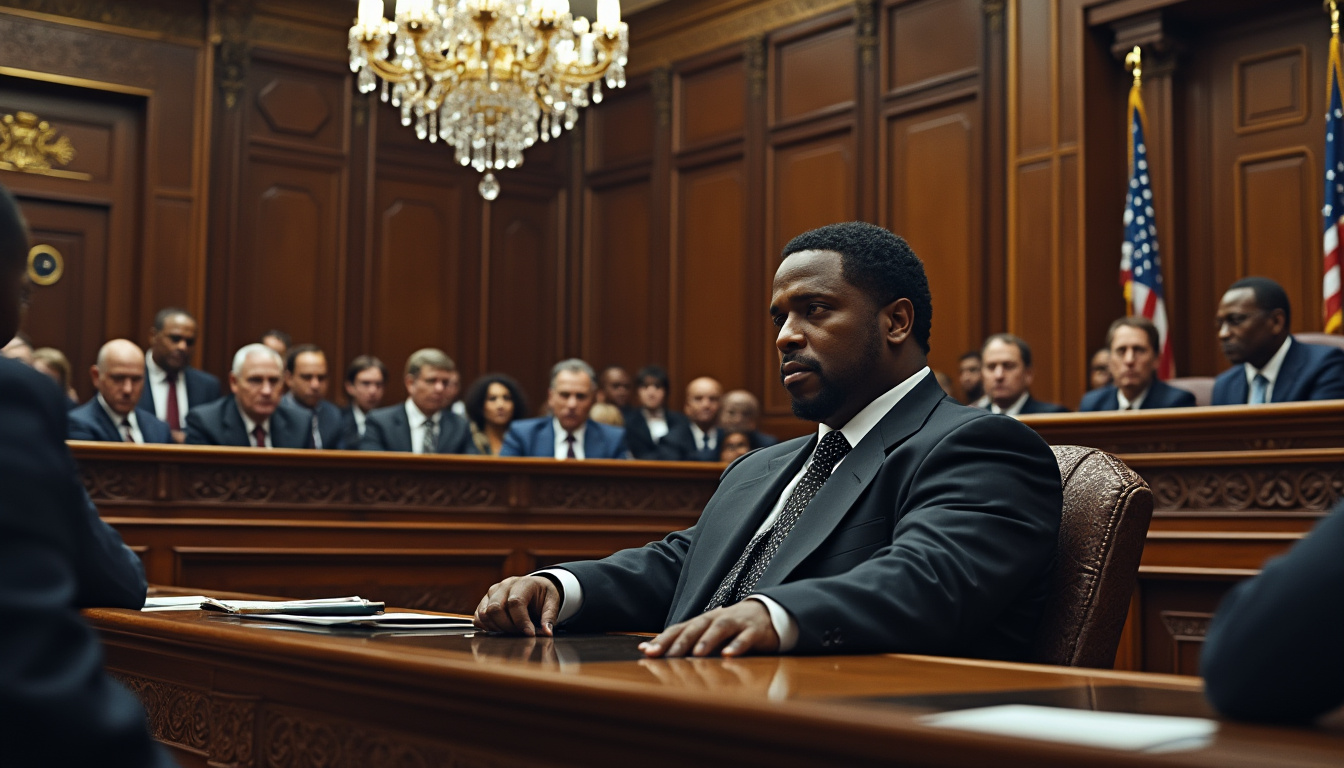As Sean ‘Diddy’ Combs heads to court for his highly publicized trial, curiosity surrounding the proceedings is at an all-time high. Unlike previous celebrity trials that captured nationwide attention through television broadcasts, such as those involving O.J. Simpson and Johnny Depp, this current case will not be visible to the public eye through any telecast. This decision has raised questions within the entertainment and legal communities, as well as among fans eager to follow the legal drama unfolding in Manhattan.
Understanding the Legal Framework Behind Televised Trials
The primary reason for the absence of cameras in the courtroom during Sean ‘Diddy’ Combs’ trial is the legal restrictions imposed on federal criminal proceedings. Under Federal Rule of Criminal Procedure (FRCP) 53, electronic media coverage of criminal trials in federal courts is generally prohibited. This rule has been in place since 1946, reflecting a longstanding perspective regarding the dignity and decorum expected within a legal setting. The intention is to preserve the integrity of the courtroom and prevent the sensationalism that can accompany high-profile cases.

Additionally, the rule states that the use of cameras or other electronic media for broadcasting judicial proceedings is only permitted if explicitly allowed by a statute or the rules themselves. While certain exceptions can be made, especially for the presentation of evidence, the overall standard leans heavily towards limiting media exposure. This case contrasts sharply with previous televised trials, shedding light on the evolving legal landscape in the context of celebrity culture.
Historical Context of Televising Court Cases
The trend of televised court cases began gaining traction in the late 20th century, particularly with trials that drew widespread public interest. In 1994, the O.J. Simpson trial became a cultural phenomenon, with millions tuning in to watch the proceedings unfold live. This led to an increase in calls for transparency in the judicial process, advocating for the broadcasting of trials involving high-profile individuals to allow public scrutiny.
However, this has not been the standard across all jurisdictions. Many courts still prohibit cameras due to concerns over the potential for trials to devolve into spectacles rather than serious judicial processes, leading to a skewed public perception based on edited footage and sensationalized reporting.
Here are some key points regarding the history and impact of televised trials:
- Public Interest: The spectacle of high-profile trials captures public attention and raises awareness about the justice system.
- Media Influence: Coverage can affect jury selection and public opinion, making impartiality challenging.
- Judicial Concerns: The presence of cameras may compromise the atmosphere of seriousness and respect in the courtroom.
In this context, the decision to keep Sean ‘Diddy’ Combs’ trial off television fits into a broader narrative about maintaining the integrity of legal proceedings, particularly when they involve serious allegations such as racketeering and sex trafficking.
The Implications of Not Broadcasting Diddy’s Trial
Not broadcasting this trial has several implications, both for the public and the defendant. For the entertainment industry, there’s a noticeable gap where once-thriving discussions based on visual evidence and courtroom theatrics could be amplified through social media platforms. Instead, the discourse surrounding the case must rely on second-hand accounts, written news articles, and social media commentary.

This lack of direct access could decrease public engagement and interest, potentially leading to less oversight in the proceedings. Indeed, if the outcomes are insulated from the glare of public scrutiny, concerns arise regarding the fairness of how justice is served. The public’s ability to observe and discuss case details often lends a sense of accountability to the judicial process, and without this transparency, evaluations of justice may be influenced by speculation rather than factual reporting.
Public Sentiment and Trial Anticipation
Despite the absence of real-time visuals, anticipation surrounding Diddy’s trial remains tangible. The implications of the allegations against him—including over 30 years of claims of abuse and sexual misconduct—have already resulted in significant public backlash. Fans and critics alike evaluate the potential repercussions for Combs not only in terms of legal penalties but also in terms of his reputation and impact on the entertainment industry.
Public sentiment towards high-profile figures is often polarized; hence, the conversation surrounding the trial continues to cultivate intense opinions. Examples of public reactions can often be seen on social media, where hashtags related to the trial trend on platforms like Twitter and Instagram.
- Discussions on Accountability: Many argue that keeping the trial private may allow for unchecked power dynamics.
- Speculation and Rumors: Without televised access, public commentary is shaped by rumors and unverified reports.
- Impact on Career: The trial’s outcome could drastically shift the trajectories of both Combs and others involved in related industries.
Alternatives to Watching the Trial
Although the trial of Sean ‘Diddy’ Combs will not be broadcast live, there remain several alternatives for those eager to follow the legal developments. News outlets and entertainment-focused platforms such as CBS, FOX, BET, and NBC have committed to providing updates through detailed reports, articles, and expert analyses.
Moreover, court watchers and legal experts will likely dissect each day’s proceedings through podcasts and online discussions, paralleling traditional court coverage with methods suited for today’s digital age. This can be beneficial in providing real-time commentary and expert insights, ensuring the public remains engaged with unfolding events.
- Follow dedicated news outlets for real-time updates.
- Engage with legal commentary through podcasts, available on platforms like Spotify and Apple Music.
- Participate in discussion forums about the trial on social media for diverse perspectives.
While the lack of direct broadcasts may alter how the public engages with the trial, it also presents an opportunity for dialogue outside traditional viewing frameworks. Thus, the trial’s significance remains undiminished, with alternative platforms poised to keep public interest alive.
Comparative Analysis of Other Trials
In light of the decision not to broadcast Sean ‘Diddy’ Combs’ trial, a comparative look at previous high-profile trials reveals a trend aligning with public entertainment versus the pursuit of justice. Trials such as those of Michael Jackson, Amber Heard, and Johnny Depp serve as prime examples of how media coverage can shape narratives.
| Trial | Outcome | Broadcast Status | Public Impact |
|---|---|---|---|
| O.J. Simpson | Acquitted | Televised | Polarizing debate on race and justice |
| Johnny Depp vs. Amber Heard | Defamation against Heard | Televised | Massive media frenzy and social media discourse |
| Michael Jackson | Acquitted | Partially televised | Reshaped public views on celebrity trials |
| Sean ‘Diddy’ Combs | Pending | Not broadcast | Lower public visibility and engagement |
This table highlights the significance of media representation and its impact on public perception. While cases with extensive televised coverage often lead to heightened public engagement, the present scenario surrounding Diddy’s trial underscores the tension between the judicial process and the public’s right to information.


